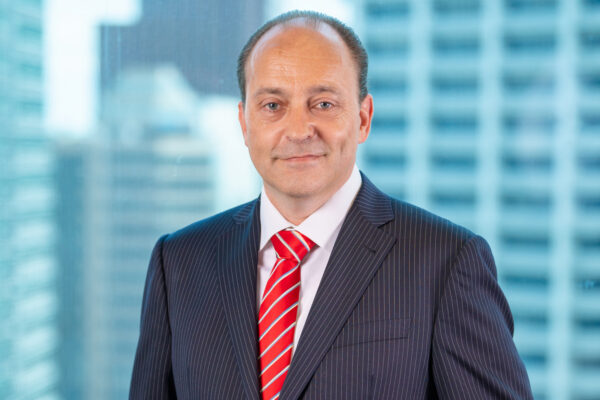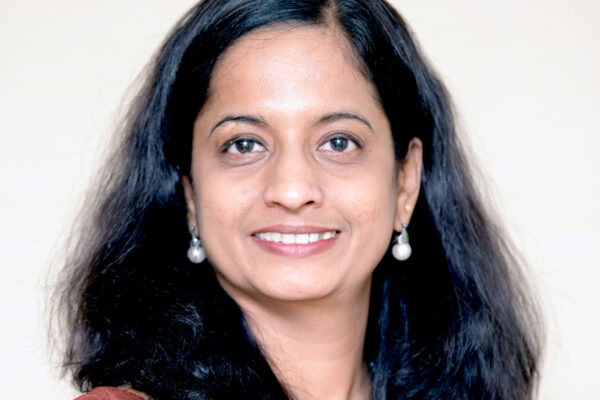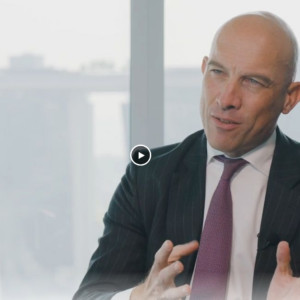Thematic investing gaining a foothold among Asian elite

There is significant potential for growth in ESG strategies and thematic investing among younger generations of Asian high net worth individuals in particular.
While Asian investors tend to be more trading-oriented compared to their North American or European counterparts, thematic investing, a long-term strategy backing megatrends shaping our economy and society, is gaining popularity in the region too, driven by tech-savvy and socially and environmentally conscious younger generations.
This investment approach explores macroeconomic, geopolitical, and technological trends expected to evolve over time, aiming to identify players across sectors and geographies benefiting from long-term, structural shifts arising from climate change, disruptive technologies and changing consumer behaviours.
In Asia, with ageing demographics, about 70,000 high net worth individuals are set to pass on $2.5tn over the next decade, according to Wealth X. This huge wealth transfer, combined with significant wealth creation, is a key growth driver for long-term strategies.
“This new generation of investors is much more open to managed solutions, less focused on short term trading and more interested in green/ESG solutions,” says Arjan de Boer, head of markets, investments and structuring, Asia at Indosuez Wealth Management.
“There is significant growth potential in Asia for thematic and more specific sustainable investing,” believes Mr de Boer, who will be speaking at the Wealth Management Summit Asia in Singapore.
This also offers private banks able to build an appealing thematic and sustainable investing a powerful tool to attract the elusive Next Gen.

Tech and sustainability
“The younger generation feels quite strongly about sustainability and technology, especially AI, and a strong thematic offering is attractive for young wealthy investors,” says Mr de Boer.
It is important though to be aware of the challenges of thematic investing. Overconcentration on a specific theme is the biggest risk. “If this theme turns out to be unsuccessful this will have negative consequences for the whole portfolio.”
Betting on the wrong theme or finding the right theme is another challenge, he says, as is “ensuring sufficient diversification” within the theme.
Investment themes “resonate strongly” with UHNW clients in particular as they impact not only their sizeable portfolio investments, but also the businesses they control, and as leaders in their own fields, says DBS Bank’s chief investment officer Hou Wey Fook.
“Topics including geopolitics, climate change and the digital economy shape the direction and arc of markets, economies, and our futures,” he says, explaining that clients show “great interest” in the bank’s thematic publications. These recently have included AI, India and China investment opportunities, and commodities investing.
“Investment themes enrich the breadth and depth of investment discussions between advisers and clients,” explains Mr Hou.
While in the past, investors, particularly in Asia, had more of a trading mentality, more recently there has been a “near universal move to a portfolio-based approach”, including thematic investments, explains Willem Sels, global CIO, global private banking and wealth at HSBC. Investors today prefer to build a diversified portfolio rather than a collection of trades and stocks.
Some themes have especially caught investors’ imagination, and are popular in client portfolios, as they are expected to generate attractive returns. A top investment theme is digital transformation.
“The innovation in the technology space, including computing power, AI, and the widespread availability of data, allows for huge innovation across sectors,” explains Mr Sels. Under this trend, he emphasises smart mobility, aerospace, such as satellites, AI and automation.
The multi-polar world theme supports “Asia’s rising tigers”, including the Asean countries and India, which benefit from companies’ diversification of the supply chain, creating local wealth and consumption.
From a shorter-term perspective, an interesting theme is the resilience of the US economy compared with Europe, which HSBC plays through investments related to consumer strength as well as its North-America’s re-industrialisation and innovation and opportunities in US healthcare theme.
While sustainable and impact investing is growing in popularity in Asia, the wealth management industry is offering more and more investment products in the space. Under this theme, HSBC focuses on climate change and biodiversity, as well as social empowerment and wellbeing.
Investing with impact
“Impact investing is gaining traction among Asian wealthy families, with many of them looking for ways to invest their wealth in a socially responsible manner,” says Gautami Gavankar, CEO- estate planning and trusteeship at Kotak Mahindra Trusteeship Services in India, also a speaker at the upcoming summit in Singapore.
In India, the impact investing market “has grown significantly in recent years”, she says. Big ticket deals, worth more than $10m, have more than doubled in the past five years. “We are seeing evolved conversations with our clients, going beyond investments, towards holistic planning and engaging with our client through our strong and holistic multifamily office proposition,” she boasts.
The proportion of family offices investing sustainably has grown year-on-year and more than two-in-five Asian family offices now invest sustainably, adds William Chou, Asia Pacific Deloitte Private leader.
This reflects an arena which is growing rapidly in Asia, with more professionals entering the field and a widening array of investments to choose from. “While there is still significant room for growth in areas such as greenwashing and investor education, there is a large enough pool of investments that can deliver both favourable returns and strong social/environmental benefits,” believes Mr Chou.

Family offices
Joseph Poon, group head of DBS Private Bank, who will also be speaking at the upcoming summit in Singapore, reports that family offices are showing interest in partnering with DBS Foundation in supporting social enterprises with “innovative solutions” to tackle critical social or environmental issues. “With the recent adjustments to the fund tax exemption schemes for single family offices in Singapore, we also hope to see more family offices deploying capital more purposely into blended finance structures and climate related investments.” However, he says, as these structures are still relatively new in Asia, “more needs to be done to raise awareness and to get family offices comfortable with these new ways of creating impact”.
Other investment professionals, though, are cautious on the popularity of these solutions.
“We see more interest from next gen clients in sustainable investment themes, but it would be premature to call this a mainstream movement,” says Michael Blake, says UBP’s head of wealth management and CEO Asia, also a speaker at the summit.
While there is greater investor engagement and interest in impact investment opportunities, “at least till the near future, the criteria for selecting best companies will always be dominated by commercial viability, followed by impact, very rarely is it the other way around”, explains Prabhir Correa, head of impact investing and philanthropy at India-based multi-family office and wealth advisory firm Waterfield Advisors. “This means even impact investors are foremost looking to meet or beat market expectations.”
Concessionary investment opportunities are only looked at by families who have a philanthropic angle to their investment, and are not considered their investment pool, but their philanthropic pool, he explains.
But the future looks brighter, as challenges around data, metrics and short track record will be gradually overcome.
“I see a trend away from impact-focused investing. I believe we will reach a point where all investments will become a little more sustainable, and the bifurcation between impact and non-impact investments will reduce. I also see a lot more focus on blended investment opportunities,” says Mr Correa.
Wealth Management Summit Asia
Senior representatives of HSBC, DBS Bank, Waterfield Advisors, as well as other key players including Lombard Odier, Barclays and Bank of Singapore will be speaking at the upcoming Wealth Management Summit Asia, to be held on March 14 in Singapore. Click here for more details





